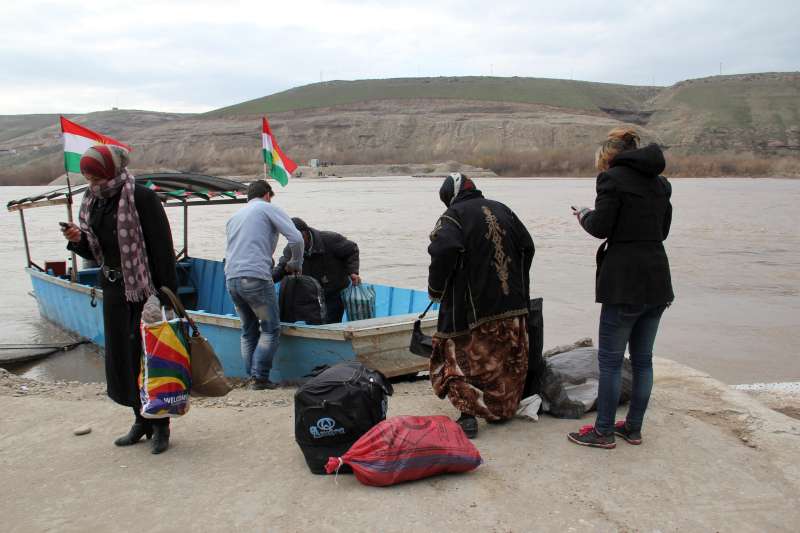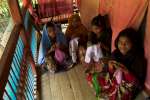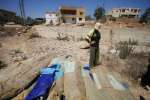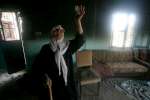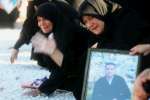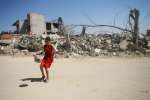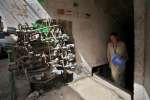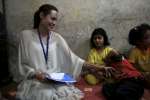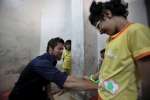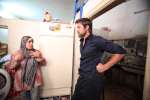Despite war at home, more Syrian refugees return from Iraq
News Stories, 8 February 2016
PESHKABOUR, Iraq, Feb 8 (UNHCR) – Under a cold winter sun, 65-year-old Nazo Osi Ali and her two daughters pull their bulging suitcases out of the back of a blue station wagon at this town in northwest Iraq across the Tigris River from Syria.
Ten months ago Nazo fled to Iraq to escape the fighting in Syria, but now she needs to return home to her war-ravaged country for medical reasons. "I have high blood pressure and a bad tooth and I want to see my own doctor and dentist," she says. "It is too expensive to get treatment in Iraq."
She is one of a growing number of Syrian refugees ground down by the protracted exile who have made the dangerous decision to return to Syria, where five years of conflict have killed around a quarter of a million people.
Nazo and her daughters had been living with her son, a day labourer, in Erbil, in the Kurdistan region of Iraq (KRI). In Erbil, the cost of living is high, especially for refugees who live in urban areas. In Erbil, Nazo said it would cost her USD$2,000 for the treatment she needs, compared to the USD$400 she will pay her dentist in her home town of Amouda.
Nazo's son-in law, who lives in Dohuk and is also a refugee, drove the women to the border to help them load their belongings onto the boat to ferry them across the Tigris to Syria. He is unhappy about Nazo's decision to return. "We're worried about her safety," he says. "Even though her daughters are travelling with her there is no one back home to look after them. But she won't listen to us," he adds.
The decision to go back to Syria comes at a price. Nazo and her daughters were required to meet with staff with UNHCR, the UN Refugee Agency, to fill out departure forms and return residency and registration papers before they could leave. In doing so, they have given up their asylum seeker documentation in Iraq and may face challenges to be re-admitted if they ever need to return.
Despite the clear risks, up to 25,000 Syrian refugees left the Kurdistan region of Iraq last year. Most returned home or, from there, continued on to Europe in search of a better life – many citing hardship in exile.
"In December 2015, 86 per cent of refugees who went back to Syria were those who were living out of camps, in urban settings. Rent is high, it is difficult to find work and people are running out of money," said Mustafa El Hegagi, a UNHCR repatriation officer who works at the Iraq border.
United Nations officials estimate that many more Syrian refugees will leave Iraq for Syria, or to other countries in 2016. But, due to the security situation on the other side of the border, UNHCR maintains a non-return policy to Syria.
"We acknowledge that refugees may be leaving Iraq because of a lack of assistance," says UNHCR protection officer Ana Scattone Ferreira. "UNHCR, donors and the humanitarian community are working hard to overcome funding gaps, but the deteriorating economic situation in the KR-I has been a major push factor for Syrian returns. In light of this, it is our duty to make sure that refugees are returning voluntarily and that they are well-informed and aware of the risks and consequences."
Nazo is not sure how safe it is going to be, but she is happy to be making the journey back to Amouda. She flashes a wide smile saying, "I am looking forward it. There isn't anything more precious than your own home."
By Catherine Robinson in Peshkabour, Iraq




